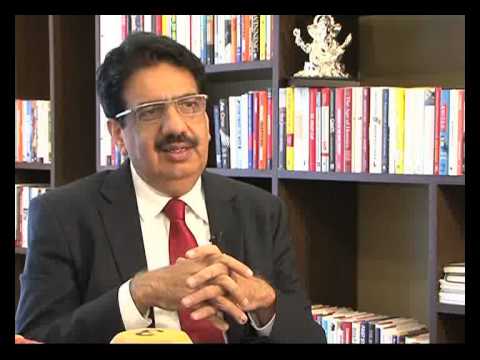Next big thing in IT will be combination of products, services: Vineet Nayar
New Delhi: Vineet Nayar, 51, is focusing on philanthropy after having stepped down as vice-chairman and joint managing director of HCL Technologies Ltd. Now non-executive vice chairman of the company, Nayar spoke in an interview about Indian information technology (IT) industry and philanthropy. Edited excerpts:
What are your views on the stipulations regarding corporate social responsibility in the new companies law?
Most of the NGO (non-governmental organization) sector in India is short-term focused because of the fact that they are dependent on government funding. With corporate sponsorship, they will start thinking long term and the social impact it will create will be longer term.
What do you think about the current state of the Indian IT industry?
The Indian IT sector has shown that you can grow a $50 billion sector from scratch if you have an idea. We have done tremendously well so far, but the challenges in front of us mean that we need to navigate through troubled times and convert these challenges into opportunities. It needs a different mindset. It doesn’t need an entitlement mindset. It really doesn’t matter how successful you were, what really matters is how successful you will be and that would mean that how easily you adapt yourself and stay relevant to the future rather than staying relevant to your past glory. That change of mindset is what Indian IT faces today.
What is the next big thing in IT?
The old big thing is dead and so you have no choice but to create the next big thing. It will be around the combination of product and services. The services grew very well in phase one. Then the product companies started dominating in phase two. Now phase three is about the utility model, where product and services come together and are available on time. So you are going to have service companies buying products and offering utilities and product companies buying services and offering utility.
You have started programmes for social change and social entrepreneurship, including an association with the government of Punjab for primary school education. How do you assess the impact of such programmes? What are some other initiatives you are looking at?
The impact assessment models in social sector are not very mature. The way in which we will measure the impact will be learning outcomes in education segment, in terms of what percentage of people passed before and after the intervention we have brought. So we hope to touch 250,000 students in Punjab through this.
The are two other projects in line. The first one is in Tamil Nadu, where we have adopted 19 villages and are implementing what we call climate smart solutions. We are helping the villagers adopt agriculture and livestock-breeding technology to be consistent with the climate around the area so as to get better livelihood returns from that. We are hoping to increase per capita income in every household by 30% in the first 18 months itself.
The other is a project in Maharashtra, in drought-hit Pune district, where farmers are vacating the land because of the soil quality, so we are working on how to desalinate the land and how to get different kinds of crops coming into the land. It will be touching 10,000 farmers. We will be putting in seed capital for this transformation. We have identified Rs.92 crore to be put in these three projects. Over and above, we will be working with the government and NGOs and using these existing resources, so we would be able to leverage our capital of Rs.92 crore to implement projects which are worth Rs.1,000 crore.
What are your plans after HCL Technologies?
Ninety percent of my time will be for being a catalyst in bringing large-scale social change. The rest I am going to contribute to management thinking. I will continue to write and blog to motivate and inspire young people. I will also take positions on some of the global board to contribute to the growth of global corporations. It won’t be (in the ) IT industry.


